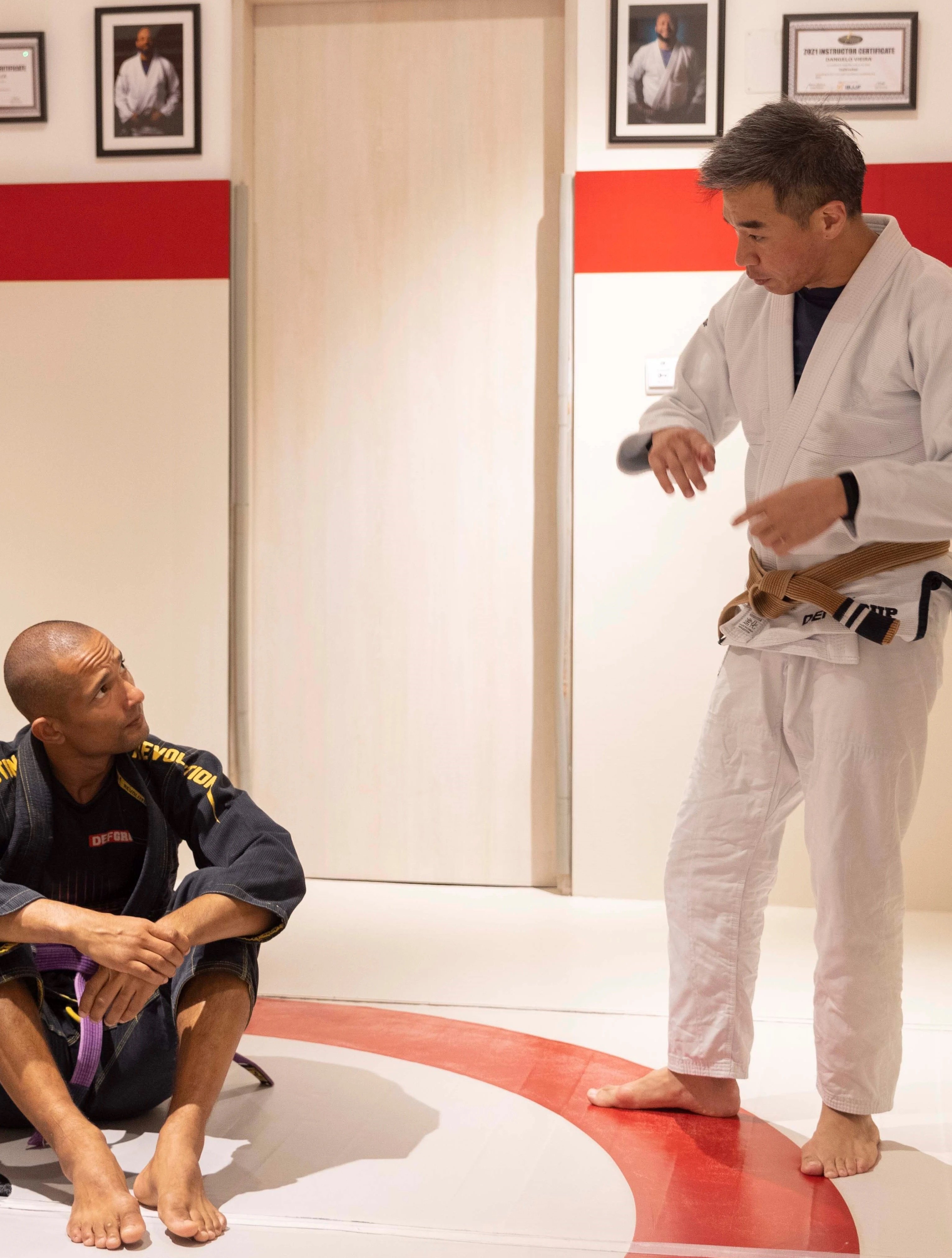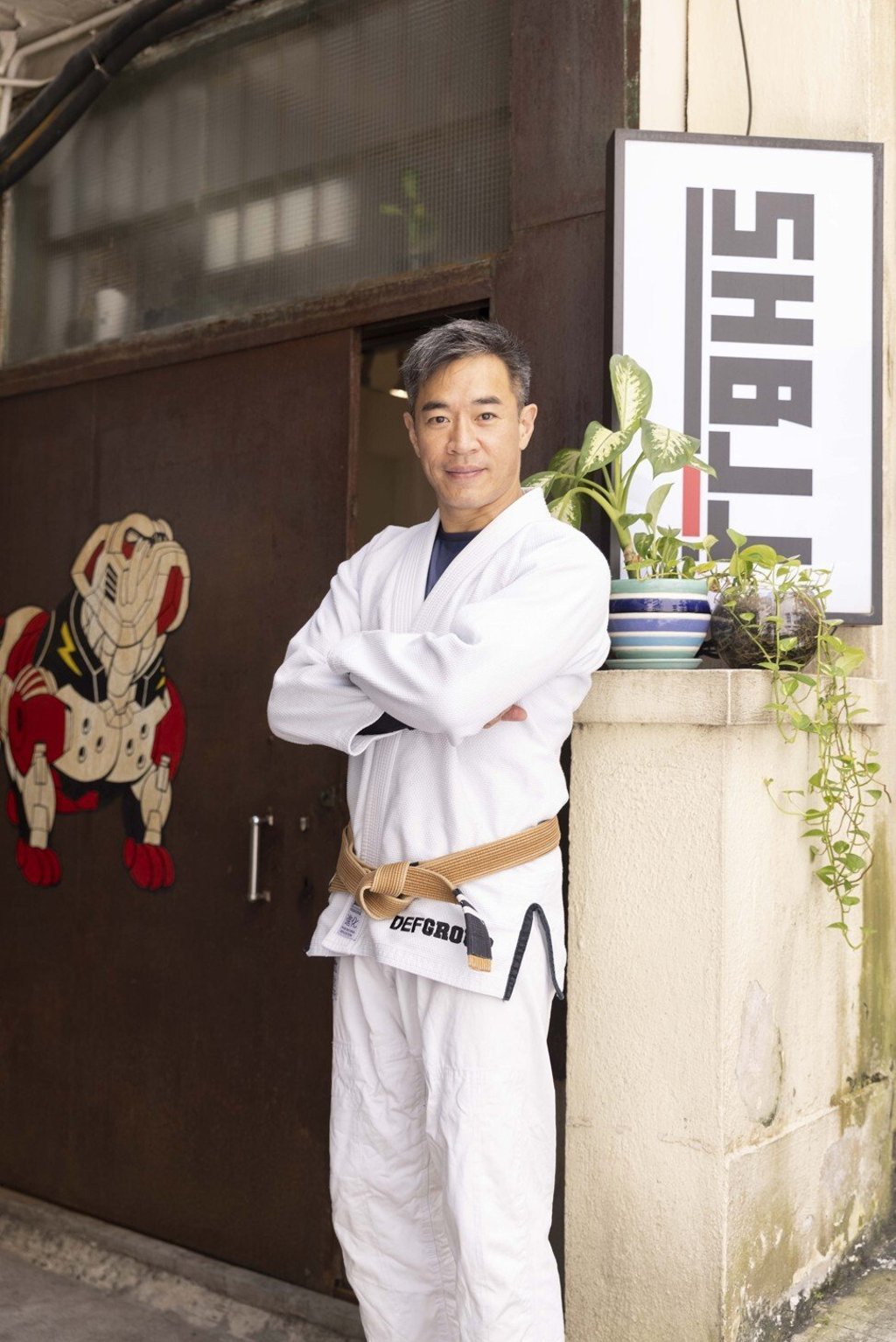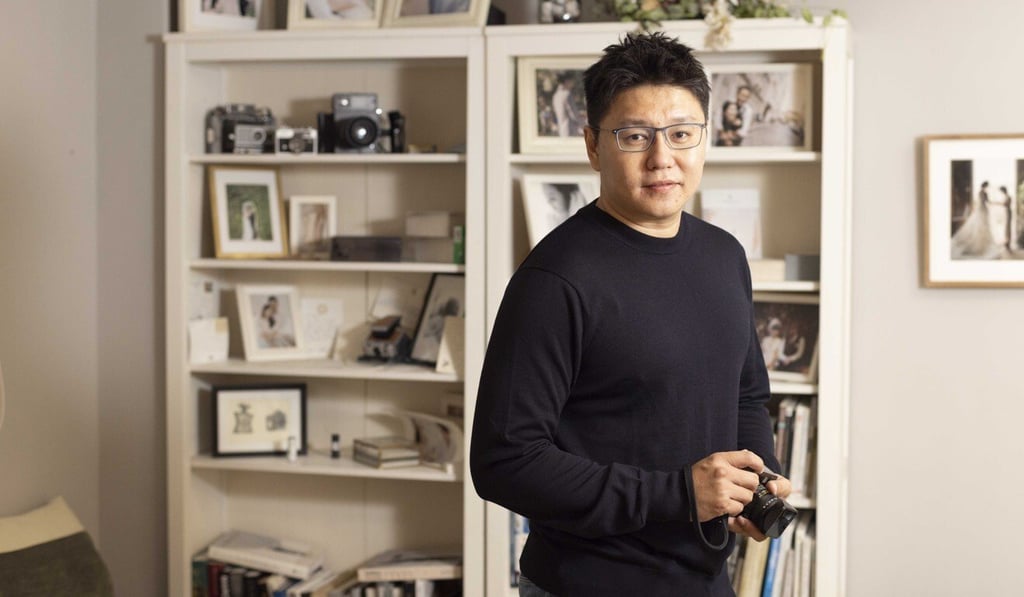

- Alex Lin says strong online presence helps boost brand awareness and attracts customers to his hard-to-find gym, SHBJJ, in Central, Hong Kong
- KC Chan uses cloud services platform GoDaddy’s tools to manage and update online ‘shopfront’ – the landing page of his photography company’s website
If you blink it would be easy to miss the small but funky Brazilian jiu-jitsu gym, known simply by its acronym, SHBJJ (Shanghai Brazilian Jiu-Jitsu), tucked away in Ping On Lane, off Hollywood Road, in Hong Kong’s Central district.
Like most fitness studios around the world, SHBJJ was forced to shut its doors for much of last year because of the Covid-19 pandemic. However, now the city has ended its strict lockdown measures, its owner, Alex Lin, a former hedge fund manager, has seen renewed interest in the sport.

“If there’s one thing that the pandemic did highlight, it was people’s thirst and demand for wellness as a whole, carried out in a community – the luxury of being able to exercise, go out for a run, or work out at the gym with other people,” says Lin, 48, a lifelong martial arts enthusiast with a brown belt in Brazilian jiu-jitsu – a version of the traditional unarmed combat and physical training centred on immobilising opponents.
“That hunger for human interaction has cemented the demand, and we have seen it shoot up even more [since] pandemic [measures eased].”
The Hong Kong-based Taiwanese businessman originally worked in finance in London and Chicago, before his company moved him to Hong Kong in 1997.
If there’s one thing that the pandemic did highlight, it was people’s thirst and demand for wellness as a whole
In 2015, Lin, who has a 16-year-old son, returned to Taipei, where he grew up, to take over the family’s children’s apparel business, Les Enphants – now a publicly-listed company headquartered in Shanghai with about 1,000 shops across mainland China, Taiwan and Southeast Asia.
Pursuing a ‘passion business’
While travelling on business between cities, Lin decided to set up what he calls his “passion business”, DEF Group – a martial arts company comprising the franchises of various boxing and martial arts gyms and physical fitness centres in Shanghai and Hong Kong. SHBJJ, in Hong Kong, which opened in late 2017, is DEF Group’s latest gym.
Lin says despite having the experience of investing in companies and running his own family’s business, he found it very challenging running the gym as a “one-man show”, including managing everything from the property, hiring of staff, daily operations, and administrative tasks such as human resources, and the customer management system.

“Getting Hong Kong’s SHBJJ up and running is the first time that I actually started a small business on my own,” he says.
Yet Lin knew from the start that building a good business website is crucial for enhancing brand awareness and visibility. “We are such a niche martial art, so people will be seeking this specific product or service,” he says. “Thus, having a webpage and online presence is very important for people to be able to find us. The core purpose of our online presence is to drive traffic to the physical academy.”
Lin built the SHBJJ website independently using GoDaddy, a cloud services platform for entrepreneurs, and says he found the process not only simple and painless, but also economical.
Having a webpage and online presence is very important for people to be able to find us. The core purpose of our online presence is to drive traffic to the physical academy
“It was my first choice when looking to set up an online presence that suited our needs as it was easy to use for a newbie like myself who is not a trained programmer,” says Lin, adding that he has customers who have complimented the website for its “no nonsense” design and easy navigation.
From hobby to life calling
KC Chan, 39, also found setting up a website to be of the utmost importance when he chose to leave his career in the banking industry a decade ago to follow his passion for photography and launch his company, KC Chan Photography, which offers high-end wedding photographic services.
“A website is like my shopfront,” says the self-taught photographer and father of two sons, aged seven and nine. “It’s a portal for people to look at my work and is the first impression that I give to all my potential clients.”

Before using GoDaddy’s website services, Chan admits he struggled for many hours to build his business website from scratch by himself, only to see it riddled with errors and programming bugs.
Things improved when he turned to GoDaddy to acquire extra domains to drive traffic to his website’s landing page. He says using GoDaddy was simple, including its convenient add-on features for updating the website’s content while being constantly “on the move”.
A website is like my shopfront. It’s a portal for people to look at my work and is the first impression that I give to all my potential clients
“The website also ensures that those who engage me already like my work. This saves a lot of time for everyone,” Chan says.
What began as a part-time hobby and casual requests from friends to take pictures at their weddings and family portraits has since evolved into a successful photography business.
These days, Chan’s calendar is packed with assignments carried out by himself and his team of photographers.

Before the Covid-19 pandemic hit, he was following a hectic schedule flying to various cities including Paris, Greece, Morocco and California on pre-wedding and wedding assignments at least 30 times a year.
Towards expansion and more
Chan says has had to adapt quickly to the “new normal” to ensure that his business could continue.
“Very early on, I had offered to shoot smaller weddings and family portraits, charging for my services by the hour instead of the typical half-day,” he says. “I ended up getting paid more because I was able to cover more ground.”
If I can shoot [weddings] until I am in my 50s, I’d be quite happy
Now that business is picking up again with the gradual global roll-out of vaccinations and easing of lockdown measures, he is already thinking about the future, including increasing his team of photographers and developing his company’s brand.
“If I can shoot [weddings] until I am in my 50s, I’d be quite happy,” he says.
Lin is also looking to expand his business to meet the surge in public demand for improved health and wellness by opening more gyms and fitness studios.

“The consumer trends that we see [among] the younger generation, the post-millennials, [are] less about buying stuff,” he says. “They are looking to improve themselves and want to spend money on what makes them feel better.”
For budding entrepreneurs thinking of taking the leap, Chan recommends they focus their energies on building up their brand on social media, as well as developing a website – and to stay resilient when they face the inevitable challenges.
Lin agrees. “If you fixate on things beyond your control, you’ll just end up spinning your wheels and wasting a lot of emotional energy,” he says. “Focus on what you can do each day to move the business forward so that you don’t despair.”

